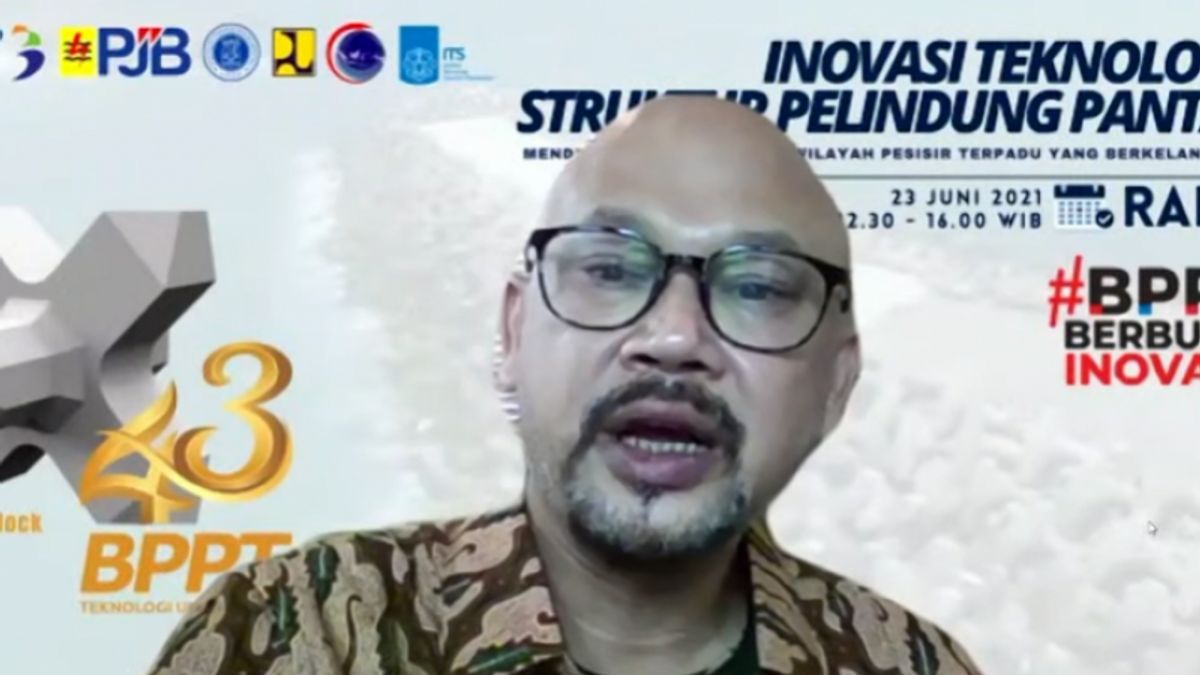JAKARTA - The decline in COVID-19 cases can only be influenced by public compliance with health protocols (prokes). This conclusion emerged from a study by the Agency for the Assessment and Application of Technology (BPPT) on the dynamics of COVID-19 cases in Indonesia, which is currently facing the second wave of the corona virus.
"From the simulation conducted by BPPT, changes in the level of transmission are influenced by mobility and probability (possibility or potential of being infected)," said Head of BPPT Hammam Riza in a statement in Jakarta, Saturday, July 10.
According to a study by the BPPT Technology Assessment Center (PKT), in cases of uncontrolled transmission, there will be a high peak and then sloping down by itself. That would result in a lot of deaths, so it would take effort to flatten the curve.
However, this condition will have an impact on the economic sector or there will be a trade off between control efforts and a decline in economic performance.
Hammam said efforts to flatten the curve of COVID-19 cases were carried out by reducing the transmission rate which was influenced by the number of contacts of infected people (due to mobility) and the possibility or probability of being infected.
Controlling the number of contacts is carried out by reducing the level of mobility, it has an impact on the economic decline. Meanwhile, the decrease in "probability" is carried out by implementing health protocols and vaccinations.
The head of BPPT said that the probability decreased due to public compliance with health protocols to around 0.4 (a compliance rate of around 60 percent), but around the beginning of June 2021 an increase in probability was indicated due to the reduced community compliance with health protocols.
In addition to these factors, the emergence of delta variants that have a higher transmission rate also played a role in the increase in COVID-19 cases. On the other hand, the dynamics of community mobility which decreased in January 2021 after passing the peak phase again increased, due to the economic needs of the community.
"This condition must be taken seriously by re-tightening health protocols and community mobility, as well as efforts to accelerate the vaccination process," said Hammam.
Hammam said that several scenarios for controlling the level of transmission were seen to reduce the daily confirmed cases that occurred. However, the success or failure of the control efforts carried out is also very dependent on how obedient the community is in implementing the health protocols set by the government.
The English, Chinese, Japanese, Arabic, and French versions are automatically generated by the AI. So there may still be inaccuracies in translating, please always see Indonesian as our main language. (system supported by DigitalSiber.id)











